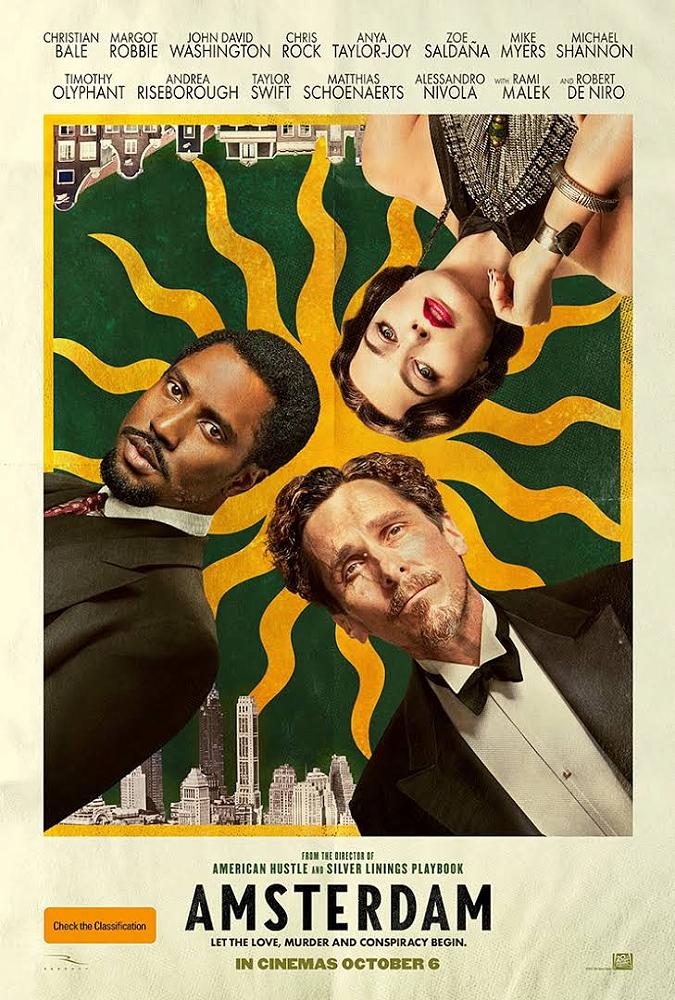
Amsterdam | A film review
Amsterdam is a crime thriller. The movie draws loosely on a political conspiracy to oust Franklin D. Roosevelt as United States President. Set in the 1930's, Amsterdam also strives somewhat awkwardly to be a modern morality tale.
Director David O. Russell assembles some serious star power. Taylor Swift, Chris Rock and Robert De Niro twinkle briefly as Liz Meekins, Milton King and General Dillenbeck, respectively. There are performances of sustained brightness from Christian Bal as Burt Berendsen, a drug-taking street doctor and Margot Robbie as Valerie Voze, a medicated New York socialite. John David shines as Harold Woodsman, a Black American lawyer.
Amsterdam’s three main characters move between three countries. Burt, John and Valerie meet in France amid the horror of trench warfare in World War 1. Together they party in post-war Amsterdam. They reunite in New York in 1934 to establish who wanted US Senator Bill Meekins killed.
A war leaves memories. Amsterdam offers several responses. One involves avoiding reality. Hence Burt, Valerie and John party in Amsterdam, the city from which the film is named. Yet back in the United States, Burt has a wife, while John desires racial equality.
Together Burt and John return to New York. They form an unlikely partnership. Burt tends to the broken minds and bodies of veterans of World War 1, while John seeks legal solutions. Escapism is deemed unable to provide sustained solutions to the inequalities of class and race.
A second response to the memories of war is to medicate. As a doctor, Burt has access to drugs. He treats the pain of his injured back with an endless range of experimental medications. Yet as Amsterdam reaches a climax, Burt's drug-taking renders him a bystander, helpless against a rising tide of fascism fervour.
A third response is to remake. As a nurse in World War 1, Valerie saves the shrapnel she finds in the bodies of wounded men. Burt acquires a teapot made from twisted metal while John plays with a battle-twisted wire mask. What Valerie has caringly extracted, she creatively remakes.
Avoidance and medication are short-term solutions. Reframing and relocating war’s horror into domestic realities offers a searching and ultimately more honest response.
The challenges of memory are introduced early in Amsterdam. Standing by Bill Meekin’s dead body, Burt Berendsen breaks into “Precious Memories.” A traditional gospel song credited to J. B. F. Wright in 1925, the lyrics are bittersweet:
Precious memories, unseen angels,
Sent from somewhere to my soul;
How they linger, ever near me,
And the sacred past unfold
In a cinematic era dominated by Marvel movies and Top Gun serials, Amsterdam wrestles with weighty themes. War's memories still linger. The rise of fascism must not be forgotten. Racism still remains. Approaching our memories, no matter how painful, as precious realities remains a sacred task.
Rev Dr Steve Taylor is the author of "First Expressions" (2019) and writes widely in theology and popular culture, including regularly at www.emergentkiwi.org.nz.
